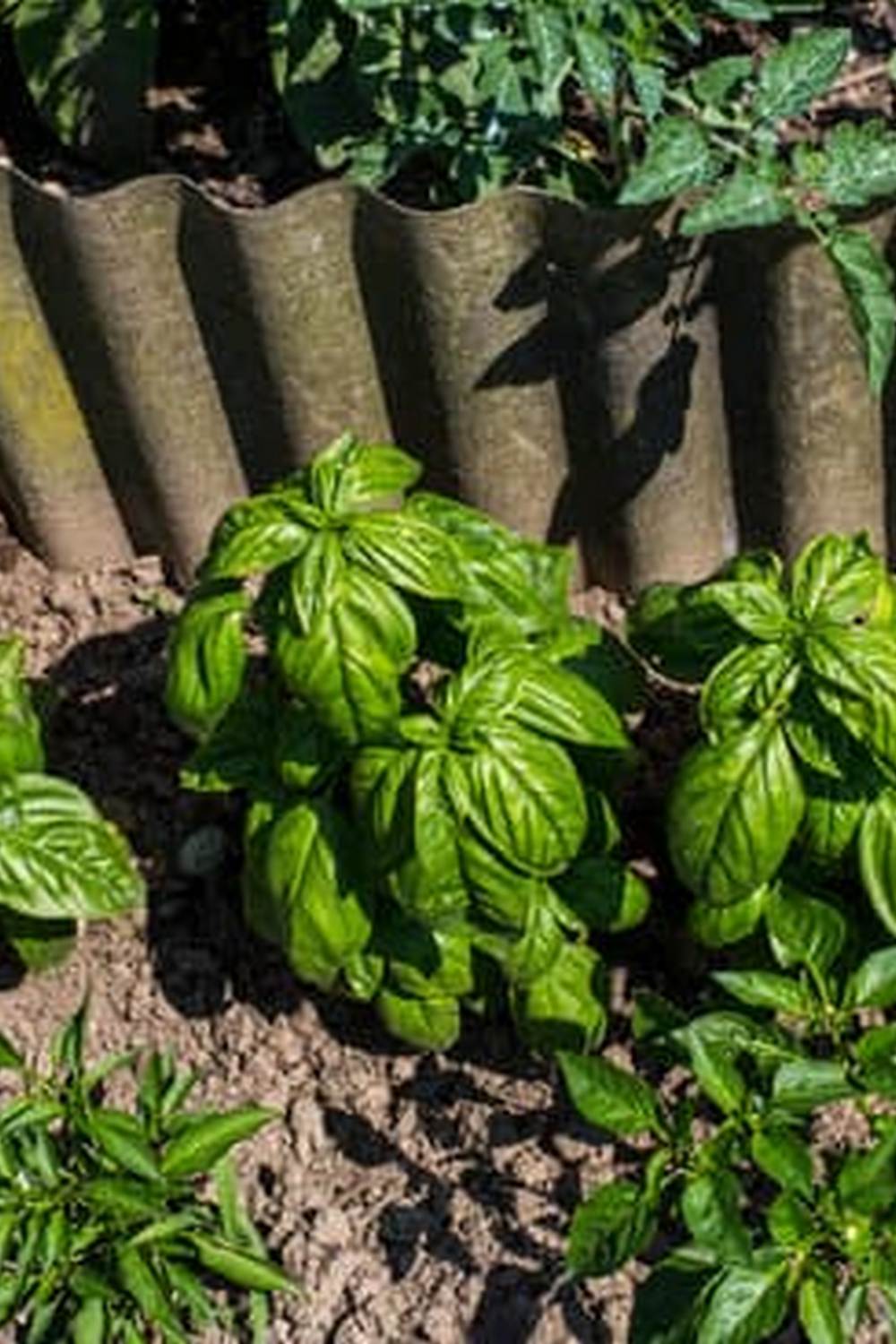Cedar mulch is a popular choice for gardeners looking to enhance the health and productivity of their plants. But can cedar mulch be used in vegetable gardens? Let’s explore the answer to this question and delve into the world of cedar mulch in gardening.
Cedar mulch is made from shredded or chipped cedar wood, known for its pleasant aroma and natural pest-repelling properties. In gardening, cedar mulch serves multiple purposes, such as retaining moisture, suppressing weeds, moderating soil temperature, and adding nutrients to the soil as it breaks down over time.
When it comes to vegetable gardens, using cedar mulch can offer several benefits. Not only does it help prevent weed growth around delicate vegetable plants, but it also keeps the soil moist and cool during hot summer months, which is essential for optimal plant growth. Additionally, the natural oils in cedar mulch can act as a deterrent to certain pests that may damage vegetable crops.
Types of Cedar Mulch
When it comes to choosing the right type of cedar mulch for your vegetable garden, there are a few varieties to consider. One of the most popular options is shredded cedar mulch, which consists of finely shredded pieces of cedar bark. This type of mulch not only adds aesthetic appeal to your garden but also provides excellent weed suppression and moisture retention.
Another common variety is cedar nuggets or chips, larger pieces of cedar bark that add a rustic look to your vegetable beds. Cedar nuggets are great for enhancing soil structure and promoting a healthy environment for plant roots. They also break down slowly, providing long-lasting benefits to your garden.
For those looking for a more natural option, cedar bark mulch is a great choice. This type of mulch is made from the actual bark of the cedar tree, offering a beautiful texture and color to your vegetable garden. Cedar bark mulch can help improve soil fertility as it decomposes over time, releasing beneficial nutrients into the soil that can benefit your vegetable crops.
Organic vs Dyed Cedar Mulch
When selecting cedar mulch for your vegetable garden, it’s important to consider whether you prefer organic or dyed options. Organic cedar mulch is made from natural materials without any added chemicals or dyes, making it a safe choice for organic gardening practices.
On the other hand, dyed cedar mulch comes in various colors such as red or black and can add a decorative touch to your garden. However, some gardeners may have concerns about the chemicals used in dyeing the mulch and their impact on plant health.
Sustainable Cedar Mulch
If you’re environmentally conscious, you may want to opt for sustainable cedar mulch options. Look for suppliers who source their cedar from responsibly managed forests or sustainable sources to ensure that your gardening practices align with eco-friendly principles. By choosing sustainable cedar mulch, you can enjoy all the benefits of this natural material while minimizing its impact on the environment.
Benefits of Using Cedar Mulch in Vegetable Gardens
Cedar mulch is a popular choice for gardeners looking to enhance the health and productivity of their vegetable crops. Not only does cedar mulch provide a beautiful and natural aesthetic to the garden, but it also offers several benefits that can contribute to the overall success of growing vegetables. One key advantage of using cedar mulch in vegetable gardens is its ability to help retain moisture in the soil.
This can be especially beneficial during hot summer months when vegetables may require more frequent watering. Additionally, cedar mulch serves as a natural weed suppressant, helping to reduce competition for nutrients and water among vegetable plants.
Another significant benefit of cedar mulch in vegetable gardens is its insect-repelling properties. Cedar naturally contains oils that deter pests such as ants, termites, and other insects that can damage vegetable crops. By using cedar mulch in garden beds, gardeners can help protect their vegetables from potential infestations without resorting to chemical pesticides. Additionally, as cedar mulch breaks down over time, it contributes valuable nutrients to the soil that can benefit the growth and development of vegetable plants.
| Benefit | Description |
|---|---|
| Moisture Retention | Cedar mulch helps retain moisture in the soil, reducing watering needs for vegetable crops. |
| Weed Suppression | The natural properties of cedar mulch act as a weed suppressant, minimizing competition for nutrients and water among vegetables. |
| Insect Repellent | Cedar mulch contains oils that repel insects harmful to vegetable crops, acting as a natural pest control method. |
Potential Drawbacks of Using Cedar Mulch in Vegetable Gardens
Cedar mulch is a popular choice for gardeners due to its natural aroma, aesthetic appeal, and beneficial properties. However, there are potential drawbacks to consider when using cedar mulch in vegetable gardens.
One concern that some gardeners may have is the allelopathic effect of cedar mulch, which can inhibit the growth of certain plants. Cedar contains natural oils and compounds that can be harmful to some plant species, so it is important to choose companion plants wisely when using cedar mulch in vegetable beds.
Impact on Soil pH
Another potential drawback of using cedar mulch in vegetable gardens is its impact on soil pH. Cedar mulch has a slightly acidic nature, which can alter the pH of the surrounding soil over time.
While this may not be an issue for some vegetables that prefer acidic conditions, it could pose a challenge for plants that need more neutral or alkaline soil. Regular monitoring of soil pH levels and amendments may be necessary when using cedar mulch to ensure optimal growing conditions for all plants in the garden.
Decomposition Rate
Additionally, cedar mulch has a slower decomposition rate compared to other types of organic mulches. While this can be advantageous in terms of long-lasting weed suppression and moisture retention, it may also mean that nutrients are not released as quickly into the soil.
For fast-growing vegetable crops that require regular feeding, this slow breakdown of cedar mulch can affect their overall growth and production Supplemental fertilization may be needed to support the nutritional needs of vegetables when using cedar mulch in the garden.
Overall, while there are benefits to using cedar mulch in vegetable gardens such as weed suppression and moisture retention capabilities, it is essential to consider these potential drawbacks before deciding whether or not to incorporate cedar mulch into your gardening practices. By weighing the pros and cons carefully and addressing any challenges proactively, you can effectively utilize cedar mulch in your vegetable beds without compromising the health and yield of your crops.
How to Properly Apply Cedar Mulch in a Vegetable Garden
Cedar mulch is a popular choice for gardeners looking to enhance the health and productivity of their vegetable gardens. Its many benefits include weed suppression, moisture retention, and soil insulation. But how exactly should cedar mulch be applied in a vegetable garden to maximize these advantages? Here are some step-by-step instructions on how to properly use cedar mulch in your vegetable beds:
- Prepare the Soil: Before applying cedar mulch, make sure that the soil in your vegetable garden is well-prepared. Remove any weeds and debris, loosen the soil with a rake or hoe, and add any necessary amendments such as compost or fertilizer.
- Apply Cedar Mulch: Once the soil is prepared, evenly spread a layer of cedar mulch around your vegetable plants. Be sure to leave some space around the base of each plant to prevent moisture-related issues like rot or mold.
- Maintain Thickness: Aim for a mulch layer that is about 2-3 inches thick. Avoid piling up too much mulch around your plants, as this can suffocate their roots. Monitor the thickness of the mulch throughout the growing season and add more as needed.
Properly applying cedar mulch in a vegetable garden can cedar mulch be used in vegetable gardens can help regulate soil temperature, reduce water evaporation, suppress weeds, and improve overall soil health. By following these steps, you can ensure that your vegetable crops thrive and produce bountiful harvests all season long.
Remember to regularly check the condition of your cedar mulch throughout the gardening season. Over time, it may break down and need to be replenished. Additionally, keep an eye out for any signs of mold or mildew under the mulch layer and promptly address any issues that arise. With proper maintenance, cedar mulch can continue to benefit your vegetable garden for years to come.
Tips for Maintaining Cedar Mulch in Vegetable Gardens
Cedar mulch is a popular choice for gardeners looking to improve the health and yield of their vegetable crops. It not only helps retain moisture in the soil but also acts as a natural deterrent for pests and weeds. However, in order to make the most of cedar mulch in vegetable gardens, proper maintenance is essential throughout the gardening season.
One important tip for maintaining cedar mulch in vegetable gardens is to regularly check the depth of the mulch layer. Over time, the mulch may break down or get compacted, reducing its effectiveness. It is recommended to replenish the cedar mulch layer every year to ensure it continues to provide all its benefits to your vegetable crops.
Additionally, while cedar mulch naturally decomposes over time, it is essential to keep an eye out for any mold or fungus growth on the mulch. If any signs of mold or fungus are present, it is best to remove those affected areas promptly and consider adding a new layer of fresh cedar mulch. This will help prevent any potential harm to your vegetable plants and maintain a healthy growing environment.
| Mulching Tip | Recommendation |
|---|---|
| Check Mulch Depth | Replenish cedar mulch layer annually |
| Monitor for Mold/Fungus | Remove affected areas promptly and add fresh cedar mulch |
Alternatives to Cedar Mulch for Vegetable Gardens
When it comes to mulching vegetable gardens, cedar mulch is not always the ideal choice for every gardener. Some may have concerns about using cedar mulch due to its potential drawbacks. Luckily, there are plenty of alternatives available that can still provide similar benefits without the worry. Here are some alternative mulching options for vegetable gardens:
- Straw: Straw is a popular and affordable option for mulching vegetable beds. It helps retain moisture in the soil, suppress weeds, and regulate soil temperature. Additionally, straw breaks down over time, adding organic matter to the soil.
- Grass Clippings: If you have a lawn, utilizing grass clippings as mulch in your vegetable garden is a great way to recycle and reduce waste. Grass clippings can help retain moisture in the soil and add nutrients as they break down.
- Leaves: Fallen leaves make excellent mulch for vegetable gardens. They not only help retain moisture but also provide insulation for plant roots during extreme temperatures. Shredded leaves are preferred as they decompose faster and do not mat together as much.
Each of these alternative mulching options provides unique benefits that cater to different gardening needs. Depending on your specific preferences and goals for your vegetable garden, one of these alternatives can cedar mulch be used in vegetable gardens may be a better fit than cedar mulch itself. Experimenting with different types of mulches can help you find the best option for promoting healthy and productive crops in your garden.
Conclusion
In conclusion, cedar mulch can indeed be successfully used in vegetable gardens, offering a range of benefits for gardeners. With its natural insect-repellent properties, ability to retain moisture, and slow decomposition rate, cedar mulch is a popular choice for many gardeners looking to improve the health and yield of their vegetable crops. The variety of cedar mulch options available also allows for gardeners to choose the type that best suits their needs and preferences.
While cedar mulch offers numerous advantages in vegetable gardens, there are also potential drawbacks to consider. Some concerns include the acidity levels in cedar mulch which could affect certain plant varieties, as well as the initial cost compared to other mulching options. However, with proper application and maintenance, these challenges can be effectively managed to ensure successful use of cedar mulch in vegetable beds.
Overall, by following the step-by-step instructions on how to properly apply cedar mulch in a vegetable garden and implementing tips for maintenance throughout the gardening season, gardeners can make the most out of this natural mulching option. For those who may prefer alternatives to cedar mulch, there are various other mulching options available that can still provide similar benefits for vegetable crops.
Ultimately, the decision to use cedar mulch in a vegetable garden will depend on individual preferences and needs but it is certainly a viable option worth considering for any avid gardener looking to enhance their growing experience.
Frequently Asked Questions
Can You Put Cedar Mulch Around Tomato Plants?
Yes, you can put cedar mulch around tomato plants. Cedar mulch is effective in retaining moisture in the soil, controlling weeds, and providing insulation to help regulate soil temperature for tomato plants.
What Are the Disadvantages of Cedar Mulch?
The disadvantages of cedar mulch include its acidic nature, which may not be suitable for all plants. It can also be more expensive compared to other types of mulch. In addition, cedar mulch breaks down slower than other types, so it may need to be replaced less often.
Is Cedar Good for Vegetable Gardens?
Cedar can be good for vegetable gardens under certain conditions. While cedar mulch does offer benefits like weed suppression and moisture retention, its potential drawbacks must be considered – especially its acidity and cost. Additionally, some gardeners prefer other types of organic mulch that provide similar benefits without the pitfalls of cedar.

If you’re looking to get into vegetable gardening, or are just looking for some tips on how to make your current garden better, then you’ve come to the right place! My name is Ethel and I have been gardening for years. In this blog, I’m going to share with you some of my best tips on how to create a successful vegetable garden.





